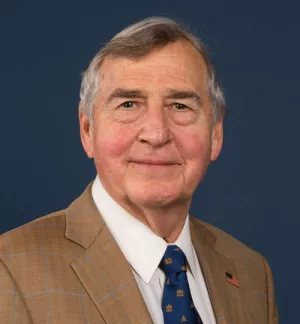During the 2004 campaign, in the first nationally televised debate between President Bush and his challenger, Sen. John Kerry, the moderator asked each candidate, "What is the single most-serious threat to American national security?"
Mr. Kerry answered: "nuclear terrorism."
Mr. Bush said, "I agree with my opponent that the biggest threat facing the country is weapons of mass destruction in the hands of a terrorist network."
In recent years, contrarians have emerged to challenge what they call an "atomic obsession." They argue that no terrorist group is seriously motivated to conduct a nuclear terrorist attack; that none is capable of overcoming "Herculean challenges" to acquire the fissile material for a bomb or constructing a nuclear device; and that even if they were able to do so, they would not be able to deliver the device to the United States.
In short, they argue that nuclear terrorism is a "worst-case fantasy."
If only this were the case.
In "Nuclear Terrorism: The Ultimate Preventable Catastrophe," published in 2004, I present the evidence for the proposition that on the current trajectory, a successful terrorist nuclear attack devastating one of the great cities of the world is inevitable. I offer my own considered judgment that if all the governments stay on autopilot, doing no more and no less than they are doing today, a nuclear 9/11 is more likely than not within a decade — that is, by 2014.
Richard Garwin, a designer of the hydrogen bomb, was called by Nobel laureate Enrico Fermi "the only true genius I had ever met." Testifying to Congress in March 2007, Mr. Garwin estimated a "20 percent per year probability of a nuclear explosion with American cities and European cities included."
My Harvard colleague, Matthew Bunn, created a model that estimates the probability of a terrorist nuclear attack over a 10-year period to be 29 percent — identical to the average estimate from a poll of security experts commissioned by Sen. Richard G. Lugar, Indiana Republican, in 2005.
Former Defense Secretary William J. Perry has expressed that my work underestimates the risk. Warren Buffet, the world's most successful investor and legendary odds-maker in pricing insurance policies for unlikely but catastrophic events, concluded that nuclear terrorism is "inevitable." As he has stated: "I don't see any way that it won't happen." Are there real and serious adversaries of the United States intent on conducting a terrorist nuclear attack on the homeland? Yes.
Al Qaeda remains a formidable enemy with clear nuclear ambitions. In 1998, Osama bin Laden declared that obtaining weapons of mass destruction was "a religious duty" for al Qaeda. According to the final report of the 9/11 commission, "Al Qaeda has tried to acquire or make nuclear weapons for at least 10 years ... and continues to pursue its strategic goal of obtaining a nuclear capability." Al Qaeda spokesman Sulaiman Abu Ghaith announced the group's objective — "to kill 4 million Americans — 2 million of them children," in retaliation for the deaths the group thinks the United States and Israel have inflicted on Muslims.
As former CIA Director George J. Tenet reveals in his memoir, "the most senior leaders of al Qaeda are still singularly focused on acquiring [weapons of mass destruction]... . The main threat is the nuclear one. I am convinced that this is where Osama bin Laden and his operatives desperately want to go."
Homeland Security Undersecretary Charles Allen confirmed Mr. Tenet's view in his Senate testimony earlier this month. He told lawmakers: "Our post-9/11 successes against the Taliban in Afghanistan yielded volumes of information that completely changed our view of al Qaeda's nuclear program. We learned that al Qaeda wants a weapon to use, not a weapon to sustain and build a stockpile. ... A terrorist group needs only to produce a nuclear yield once to change history." Would a nuclear 9/11 be a game-changer? You bet.
Consider the consequences of even a single nuclear bomb exploding in just one U.S. city. Researchers at the Rand Corp., a U.S. government-funded think tank, estimated that a nuclear explosion at the Port of Long Beach, Calif., would cause immediate indirect costs worldwide of more than $3 trillion and that shutting down U.S. ports would cut world trade by 10 percent.
The negative economic repercussions would reverberate well beyond the developed world. As former U.N. Secretary-General Kofi Annan warned, "Were a nuclear terrorist attack to occur, it would cause not only widespread death and destruction, but would stagger the world economy and thrust tens of millions of people into dire poverty," creating "a second death toll throughout the developing world."
What's been done to address the threat? More than one would recognize.
In the 16 years since the collapse of the Soviet Union, visionary leadership and far-sighted government programs — see the Nunn-Lugar scorecard at http://lugar.senate. gov/nunnlugar/scorecard.html — have made significant headway in securing nuclear weapons and materials.
U.N. Security Council Resolution 1540, in 2004, focused attention on the nuclear-terrorism threat globally by legally obligating all member states to provide "appropriate effective export controls, border controls, and transshipment controls."
What is left undone? A great deal.
Over the last two decades, a series of missed opportunities and missteps have eroded the nonproliferation regime. As the 2004 U.N. High-Level Panel on Threat, Challenges and Change concluded: "We are approaching a point at which the erosion of the nonproliferation regime could become irreversible and result in a cascade of proliferation."
The incoming U.S. administration's top priority should be to reverse this trend. The alternative — a world of nuclear anarchy — is not one in which Americans protect and advance our values or our interests.
• Graham Allison, director of the Belfer Center for Science and International Affairs at Harvard University's Kennedy School of Government, is a former U.S. assistant secretary of defense and author of "Nuclear Terrorism: The UltimatePreventable Catastrophe."
Full text also available at: http://www.washingtontimes.com/apps/pbcs.dll/article? | AID=/20080423/FOREIGN/466224595&template=printart
Allison, Graham. “Nuclear Attack a Worst-Case Reality?.” The Washington Times, April 23, 2008


